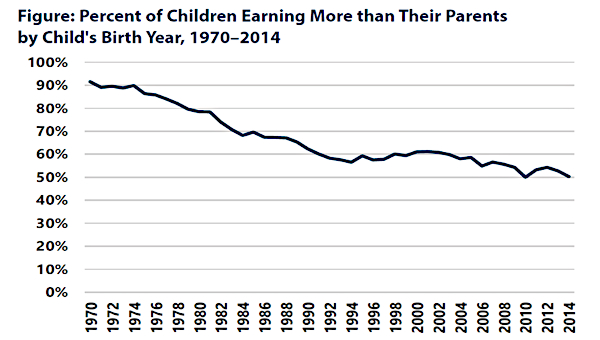No Time for Public Sector Austerity
The 2007-08 financial crash was, in terms of its global impact, the greatest in history. It was only prevented from immediately triggering another Great Depression by governments in so many countries taking on the enormous private debt of their banks. Nevertheless, the economic fallout was immense. Even while tax revenues fell as businesses closed and workers were laid off, many governments felt compelled to maintain their spending. Looking for safety in numbers, the G20 (an entirely marginal group until George Bush convened it in late 2008) proved useful to coordinate a global stimulus.
Two years later, with the banks having dumped so much debt on the public sector and their profits on the rise, bond traders were feeling confident enough again to dispense the bankers’ old orthodoxies on the evils of public debt. Even though the growth in state deficits was directly the product of bailing out the banks, the loss of revenue and the emergency spending, governments were expected to shift their policy priorities to public sector austerity. The G20 was reconvened in Toronto to reassure financial markets that they heard the message.
All this serves as better definition of chutzpah than the old joke about the kid who, after killing his parents, begs the judge for clemency on the grounds he is an orphan.
The Hammer is About to Hit Right Here in Ontario
Despite the relative insulation of Bay Street from the financial collapse, the provincial economy took a major hit. With its deficit projected at $21.3-billion, the Liberal Government’s March budget focused almost entirely on debt reduction. Apart from putting on hold essential public transit expansion and reducing food assistance for the disabled (while keeping corporate tax cuts in place), it also imposed a two year wage freeze on 350,000 non-unionized government workers.
This week, even though data on first quarter economic growth has shown the deficit projections were too high, the other shoe dropped. Finance Minister Dwight Duncan summoned public sector union representatives to Queen’s Park to discuss a broader public sector freeze. If implemented, the immediate effect of this can only be to cut the feet from under the economic growth that has occurred. Rather than cooperate in this, it is very much to be hoped that the unions will undertake a broad campaign to expose how unreasonable and irrational, let alone unimaginative and unjust, is public sector austerity in this crisis.

The possibility that the worst is not over, and we could yet face a long stagnation if not a global depression, does indeed make it incumbent on the Ontario government, like every other, to take the crisis very seriously indeed. Its effect on government revenues is the real immediate problem, and since we are dealing with a crisis of once-in-a-life-time dimensions, the remedy should be an emergency once-in-a-life time emergency tax on those who accumulated the most wealth over the past quarter century from asset inflation while workers’ incomes stagnated in both the public and private sectors.
The Ontario government should also be expected to take advantage of the lowest interest rates on public debt in memory and use its borrowing capacity to keep economic growth going in the face of the banks’ hesitancy to lend to businesses and consumers, alongside industry’s own reluctance to invest. One would have thought that a government of a liberal stripe that was at all creative might want in this context to emulate Franklin Roosevelt and undertake the rebuilding of our public infrastructure through direct expansion of public employment.
This is all the more important given the demands of the environmental crisis and the closure of plants and waste of skills that could be converted and applied to productive use. Rather than freezing the public sector, this moment should be an opportunity to address the crisis in the transportation sector that is so vital to Ontario’s whole economy, as measured not only in auto industry shutdowns and layoffs but in notorious traffic congestion on our roads. This would mean converting auto assembly and parts plants to the production of energy efficient mass transit vehicles and using the tax revenues from the jobs generated thereby to fund free public transit. If there was ever a time to use Ontario’s capacity to raise funds in bond markets for this, it is now. Far from placing a burden on future generations, it would guarantee them a future.
Of course, one would expect a union campaign to set out a vision for what a more radical government would do. This crisis has proved – by the state’s guarantee of deposits in Canada, and by its acting as lender of last resort almost everywhere – that finance effectively is a public utility. The argument that financing an economy is too important to be left to private banks is waiting to be heard. What must be brought onto the agenda in face of the pressures that unelected bankers, with astonishing chutzpah, are putting on governments is the need for banking to be turned into a democratic public utility. The money the people of Ontario entrust to their banking system could then be used to meet our society’s real needs. •
Resources:
- LeftStreamed: Bargaining in an Era of Wage Restraint with Sam Gindin and Michael Hurley.
- Bullet No. 354: The Public Sector: Searching for a Focus by Sam Gindin and Michael Hurley.
- Bullet No. 357: Municipal Malaise: Neoliberal Urbanism and the Future of Our Cities by Carlo Fanelli and Justin Paulson.
- Austerity: Why and for Whom? by Richard D. Wolff.





